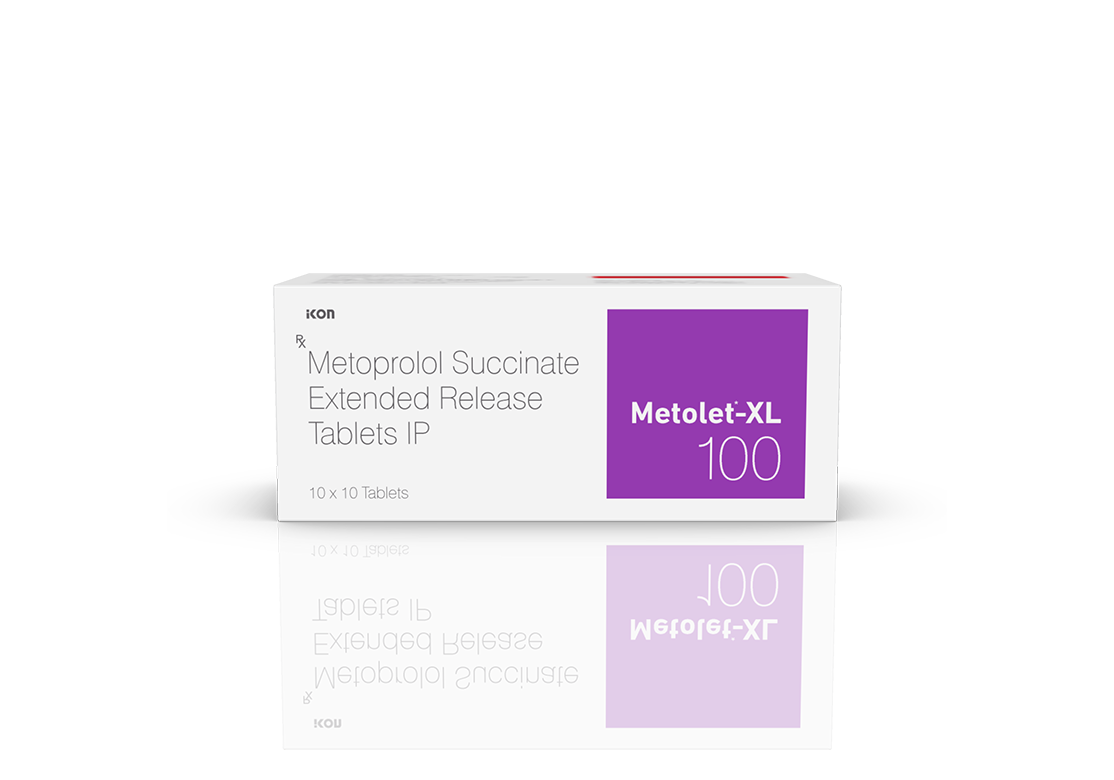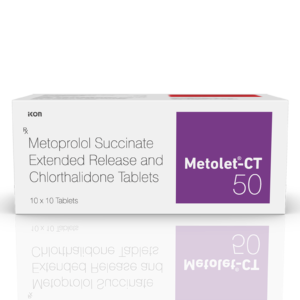Additional information
| Dosage Form | Tablets |
|---|---|
| Specialities | Cardiologist, Nephrologist, Physician |
| Packing | 1 x 10 (Alu-Alu) |
| Therapeutic Segment | Antihypertensive |
Metoprolol Succinate 100 mg (ER) belongs to a group of medicines called beta-blockers. It is used to treat high blood pressure (hypertension), angina (heart-related chest pain), and irregular heart rhythms (arrhythmia). It also helps to prevent migraines, future heart attacks, and stroke.
- Treatment of Angina (heart-related chest pain)
- Treatment of Arrhythmia
- Prevention of Heart attack
- Treatment of Hypertension (high blood pressure)
- Prevention of Migraine
Take this medicine in the dose and duration as advised by your doctor. Swallow it as a whole. Do not chew, crush, or break it.
Metoprolol is a cardioselective β-blocker medication that acts on the β-1 adrenergic receptors in the heart and reduces the effects of catecholamines (such as adrenaline and noradrenaline) on cardiac function. The mechanism of action of metoprolol can be explained in the following steps:
Metoprolol binds to the β-1 adrenergic receptors on the surface of the cardiac cells, especially in the sinoatrial node, the atrioventricular node, and the ventricular myocardium.
Metoprolol blocks catecholamine receptor activation by competing for the same receptors; this reduces the intracellular signaling pathways mediated by cyclic adenosine monophosphate and protein kinase A (PKA).
Metoprolol decreases the slope of phase 4 in the nodal action potential, which is the spontaneous depolarization phase that determines the heart rate. By reducing the sodium influx during this phase, metoprolol slows down the firing rate of the pacemaker cells and lowers the heart rate.
As directed by physician









